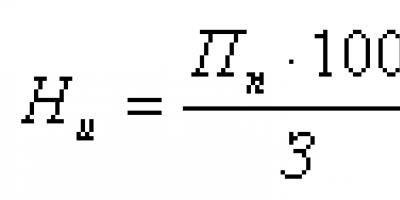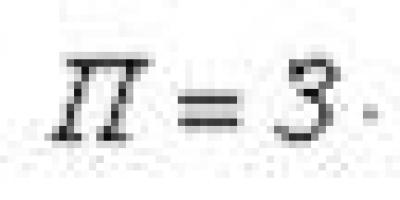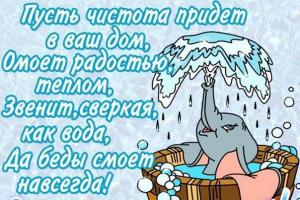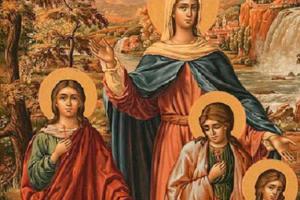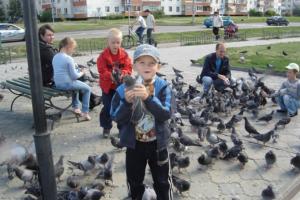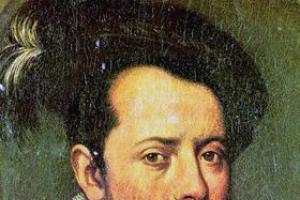There was another conference of three powers - the very first. It took place on September 29, 1941 in Moscow. The British delegation was led by Lord Beaverbrook, Minister of Supply, and the American delegation by the personal representative of the US President, Ambassador Harriman. The agenda includes providing assistance to the Soviet Union and coordinating some international issues that directly affect the course of military operations.
The fact is that the war unleashed by Hitler on September 1, 1939, with an attack on Poland, sobered up many Western politicians. Already on October 6, 1939, Churchill, at a meeting with the Soviet ambassador Ivan Maisky, stated: “Some of my conservative friends recommend peace ( with Germany. – L.I.). But I stand for the war to the end. Hitler must be destroyed. Nazism must be crushed once and for all. Let Germany become Bolshevik. It doesn't scare me. Better communism than Nazism."
“Not all commanders and general staff wanted to end the war on the Oder; some dreamed of crossing the English Channel.”
On June 22, 1941, he was the first of the leaders of foreign states to firmly declare support for the USSR and readiness to provide assistance to Russia and the Russian people. US President Roosevelt spoke the same way. On June 27, 1941, a British military and economic mission arrived in Moscow, and a week later, Soviet military representatives headed to London and Washington. On July 12, the Soviet-British Agreement on joint actions in the war against Germany was signed in Moscow.
Cooperation is fruitful, the parties’ views on the post-war world order have come closer. And the Yalta meeting of the three leaders became decisive. Alas, in the West they will probably try to ignore the anniversary of this event and to downplay its significance, since they believe that the Americans won the victory over Nazi Germany with the help of the British. They are the saviors of the world, and the USSR has nothing to do with it. Although even the most inveterate patriots of the United States will have a question: why did the American president and the British prime minister, risking their lives, move back in 1945 to some Soviet Yalta to decide the post-war destinies of the whole world.
For Russian liberals, this date is also a fly in the ointment of Russia’s stolen wealth: how could a country destroyed by revolution, Civil War and foreign intervention, in 20 years, turn into a power that stopped the invasion of almost all of Europe and determined the foundations of the future world order? To answer this question, one will have to compare those results with the 30-year “democratization” of the country, mentioning Stalin, who, despite the unbridled blasphemy, is an increasingly important idol among today’s Russian youth, not to mention the older generation.
But let’s return to the event that turned the course of human history, where, by the way, the political and legal end was also put to the colonial system. What were the prerequisites for this, what happened behind the scenes of the negotiations?
How Roosevelt and Churchill quarreled
Since 1942, US President Roosevelt has repeatedly approached Stalin with proposals for a meeting in a bilateral or trilateral format. Various locations for the summit were proposed, including the United States, northern Africa, even the Bering Strait. Naturally, Roosevelt did not ask for a meeting on the territory of the Soviet state, as Churchill did, and the Soviet side did not hint at its readiness to receive the US President.
Stalin responded to the proposal only after Battle of Kursk, which radically changed the course of the war by proposing Tehran as the meeting place. The turning point during the Great Patriotic War seriously raised the authority of the USSR and allowed it to largely dictate its terms. And the choice of the capital of Iran as the meeting place strengthened Moscow’s position in this key region of the Middle East, especially since there were Soviet troops on the territory of this state and a developed system of our military intelligence was in operation.
At the same time, it was a compromise with the allies, allowing Roosevelt and Churchill to maintain their political face within the country, since British and American (to a lesser extent) companies were actively working in Iran. The following detail was also taken into account: Stalin and Roosevelt developed an unspoken trusting relationship based on mutual respect. Both were also interested in weakening the positions of England and Churchill personally, the British circles behind him, and strengthening each other’s political positions. The winners from this approach were the USA, the USSR and all of humanity; the losers were the British political and financial elites and some American groups associated with them, including a number of generals. Roosevelt would later say: “Under the leadership of Marshal Joseph Stalin, the Russian people showed such an example of love for the motherland, fortitude and self-sacrifice, which the world has never known. After the war, our country will always be glad to maintain relations of good neighborliness and sincere friendship with Russia, whose people, by saving themselves, are helping to save the whole world from the Nazi threat.” Apparently, these were sincere words.
Stalin, in turn, highly valued the US President's sound approach to world problems, but also understood his real capabilities and the strength of those who opposed his course. And Stalin’s dislike for Churchill was quite understandable: this seasoned Russophobe and anti-communist, who firmly professed a racial policy towards the peoples of the colonies, in international affairs proceeded only from the position of benefit for the ruling class of England. He hated and despised Russia, and even during the war years, especially when it became clear that the Union would survive, he did everything to weaken it as much as possible.
“Veterans of American politics and generals hinted that Roosevelt did not die a natural death.”
For Roosevelt, Churchill was the head of government of a rival country and an unpleasant person in many respects. Churchill came from a family of British aristocrats who launched colonialism, slavery, and racial hatred into the world. The American president inherited (like his more humble family) the political principles of Lincoln and Washington, and valued the freedom and independence of his own and other peoples. Repeatedly in correspondence and personal conversations he stated the unacceptability of the cruel treatment of the British against the population of the colonies. In one of the telegrams, he harshly asked the British Prime Minister why the British did not remove the corpses of killed and deceased local residents in the countries they had colonized from the streets.
In addition, the US President was informed after the Pearl Harbor tragedy (December 1941) that British intelligence knew about the Japanese plans to destroy the American fleet, but did not inform Washington. There were reasons for this: the Nazis bombed London and other cities, sank British ships, threatened to invade the British Isles, but the United States did not enter the war, considering it a European matter. The highly educated analyst Franklin Roosevelt also saw what was hidden to others: at the origins of both the First and Second World Wars were the elite, financial circles and the secret strategy of Great Britain. He understood perfectly well who encouraged Hitler to march to the east. Germany was partly the executor of secret plans unknown to it.
Churchill also contradicted Roosevelt on issues of assistance to the Soviet Union. But there were even more serious geopolitical problems between the USA and Great Britain: who will become the leader of Western civilization, the world of capitalism as a whole? It is clear that the one who suffers less during military operations will strengthen the overall power and make a greater contribution to victory. In 1944, with the Bretton Woods agreement, when the dollar was declared the world's reserve currency, the United States celebrated its victory over Britain. Churchill and Roosevelt also differed diametrically on the issue of decolonization. All this could not fail to be reflected in the final communiqué of the Conference on Cooperation between the USA, Great Britain and the USSR.
There was also intrigue in the proposal to hold the conference in Crimea. The Soviet Union has been a serious debtor to the United States since the period of industrialization. American companies participated in the construction and launch of about 600 large factories in the USSR, shared technologies and, of course, financed projects. During the war years, new enormous needs arose, and the United States helped us survive as best they could, but, of course, not for free. The Soviet Union paid with whatever it could: gold, grain, furs, but this was clearly not enough. Therefore, Crimea, which not everyone knows about, became a kind of collateral guarantee for Soviet debts. The US elite was sure: the USSR would not pay the price and the peninsula would inevitably go to America.
Its business people, especially those of Jewish nationality, have already built various projects about Crimea. The most popular and influential is “California Tavrida”. A joint stock company was created under it, shares were issued, and a newspaper with the same name was published. Certain US circles spread the idea of making Yalta the new Jerusalem, and the Crimean Peninsula - Israel (New Khazaria). This idea was gaining popularity. The support of the Jewish community was very important to Roosevelt, against whom pressure was mounting from conservative circles, including some influential generals. They were especially unhappy with Roosevelt's policies regarding aid to the Soviets. Therefore, not all of his decisions found support in Congress.
At the Yalta Conference, the president was shown, on the one hand, the total destruction and barbarity of the Nazis, and on the other, magnificent historical architectural complexes, the natural landscape, and the sea. Apparently, these circumstances also prompted Roosevelt to decide to provide the Soviet Union with a loan of 10 billion dollars for the restoration of the country. Subsequently, Truman, having become president, refused the loan. But the United States did not receive Crimea and Sevastopol either. Stalin, to the surprise of American financiers, began to pay in gold. And the Soviet Union (Russia) gradually paid off the Lend-Lease debts.
Geopolitical U-turn
Surprisingly, after close communication with Roosevelt, Stalin was also criticized by his comrades, who accused him of flirting with the imperialists. Not all commanders and general staff wanted to end the war on the Oder; some dreamed of crossing the English Channel. Stalin wanted the peaceful construction of a socialist state and a secure world order. After the conference, he stated: “Cooperation and understanding between the Soviet Union, the United States and Great Britain is not at all a manifestation of unprincipledness and opportunism, but rather a firm and permanent political line.” This phrase conveys a desire to avoid the split of humanity into opposing camps and a new world war, which is consonant with the thoughts of the American president. Stalin keenly hoped for the development of close cooperation with Roosevelt specifically on issues of international and mutual security of the United States and Soviet Russia.
Unfortunately, on April 12, 1945, the President of the United States passed away. Although his brainchild, the United Nations, remains and still operates, the principles of international politics laid down in the UN Charter, the ban on colonization and genocide of peoples, the principle of equality, and much more.
Roosevelt’s assessment of the results of the meeting is known: “At the Crimean Conference, the three leading powers, through joint efforts, were able to find common ground to achieve peace. This must mean the end of the system of unilateral action, exclusive alliances, spheres of influence, balance of power and all other means that have been tried for many centuries - and always unsuccessfully. We propose to replace all this with a world organization, which all peace-loving states will finally be able to join.” Probably only he and Stalin fully understood the greatness of what had been accomplished, the enormity of the organization being created, to which the countries of the world delegated the right to suppress wars and punish the aggressor - an effective system of international security.
Let us repeat: the issue of decolonization of humanity was resolved in February 1945 in Yalta by two great politicians. Unfortunately, by doing so, one of them apparently signed his own death warrant. Veterans of American politics and generals have repeatedly hinted about this to me personally in the United States, making it clear that Roosevelt could not have died a natural death. Nevertheless, the colonial system was destroyed.
Winston Churchill then lost to two giants. Realizing that the British elite and the world behind the scenes would not forgive him for this, he sarcastically assessed the results of the meeting: “The Yalta conference was pleasant in a gastronomic sense, useless in a military sense, oppressive in a political sense... I did not become the king’s first minister in order to preside over the ceremony of the collapse of the British Empire " And soon he began his counter-game, which would develop into a cold war.
Main results of the Livadia Forum:
- building a just post-war world order;
- creation of the UN;
- decolonization and prevention of genocide of peoples;
- ensuring reliable security of their countries and allies;
- the post-war structure of Europe and the fate of Germany;
- military action against Japan;
- prosecution of Hitler's leadership.
The first three issues were the main ones, all the rest faded into the background, becoming the subject of concessions and compromises. Roosevelt, in particular, was particularly pleased that Stalin had changed his position on China, agreeing that it could become the fourth "international policeman." In addition, by the beginning of the Yalta meeting, the USSR took the following steps:
- dissolution of the Comintern and development of relations with communist parties on a bilateral basis;
- the new anthem (instead of the “Internationale”) reflected the national Russian tradition;
- restoration of Russian rights Orthodox Church and the elevation of its role in Soviet society;
- abolition of the institution of commissars in the army;
- changing the status of the officer corps, introducing shoulder straps, returning the traditions of the Russian army.
What was lost was what the Reds and Whites fought to the death for on the fronts. Civil War. Yalta seemed to reconcile the sides of the Civil War in Russia. All these are quite serious changes, which for many years also remained behind the scenes of the meeting in Crimea.
The greatness and world-historical significance of the Yalta Conference cannot be overestimated. Today, with the uncertainty of the future of all humanity, returning to February 1945 is extremely relevant. Because the current generation of politicians, financial tycoons, heads of transnational corporations, members of the Seven, Twenty, Davos participants have forgotten the horrors and lessons of the Second World War. Humanity, under the leadership of the West, has wandered into yet another dead end in search of a way out of the systemic crisis, and will simply be forced to turn again to its Yalta origins.
The art of war is a science in which nothing succeeds except what has been calculated and thought out.
Napoleon
The Yalta (Crimean) Conference took place on February 4-11, 1945 at the Livadia Palace in Yalta (Crimea). The conference was attended by leaders of 3 powers: USSR (Stalin), USA (Roosevelt), Great Britain (Churchill). Foreign ministers, chiefs of staff and advisers took part in the conference along with the leaders of the countries. The main question is the post-war world order and the fate of Germany. By this moment, it was absolutely clear that the war had been won and the question of the surrender of Nazi Germany was a matter of several months.
Choosing a conference venue
Planning for the conference began about six months in advance, and the leaders of the countries first spoke about its need in May 1944. Churchill did not express wishes or demands regarding the venue, but Roosevelt suggested holding the meeting in Rome, citing the fact that the US Constitution does not allow him to leave the country for a long time, and he himself can only move in a wheelchair. Stalin rejected this proposal and insisted on holding a conference in Yalta, although Roosevelt also proposed Athens, Alexandria and Jerusalem. He talked about places with warm climates.
Having held a conference in Yalta, in Crimea, Stalin wanted once again demonstrate the power of the Soviet army, which independently liberated this territory from the German occupiers.

Operation Valley
“Valley” is the code name for the operation to ensure security and other issues of the conference in Crimea. On January 3, Stalin instructed Beria personally to carry out these events. First of all, we determined the locations of the delegates:
- Livadia Palace is the location of the US delegation and the venue for the conference.
- Vorontsov Palace is the location of the British delegation in Yalta.
- The Yusupov Palace is the location of the USSR delegation.
Around January 15, NKVD operational groups began working in Crimea. Counterintelligence was active. More than 67 thousand people were checked, 324 were detained, 197 were arrested. 267 rifles, 283 grenades, 1 machine gun, 43 machine guns and 49 pistols were confiscated from the verified persons. Such counterintelligence activity and unprecedented security measures gave rise to rumors among the population - preparing for war with Turkey. This myth was dispelled later when the reasons for these actions became clear - the holding of an international conference of the heads of the 3 leading world powers in Yalta to discuss issues of further development of Europe and the world.

Issues discussed
War with Japan
At the Yalta Conference, the issue of the USSR's entry into the war against Japan was discussed separately. Stalin said that this was possible, but not earlier than 3 months after the complete surrender of Germany. At the same time, the Soviet leader named a number of conditions for the USSR to enter the war against Japan:
- The results of the Russo-Japanese War of 1904-1905 are annulled, and the USSR returns all territories lost by the tsarist government.
- USSR receives Kurile Islands and South Sakhalin.
The issue of the USSR starting a war with Japan did not raise any big questions, since Stalin was interested in this. It was obvious that Japan would not be able to resist the allied army, and at the cost of little effort it would be possible to win and return the previously lost lands.
All decisions of the Crimean Conference
The Yalta Conference on February 4–11, 1945 produced a document, the main points of which were as follows:
- Creation of the United Nations. The first meeting at which the organization's charter was to be developed took place on April 25, 1945 in San Francisco (USA). All countries that were at war with Germany at the time of February 8 could join the UN. It was decided to create the UN Security Council, which included the USSR (successor to Russia), the USA, Great Britain, China and France. All 5 countries have the right of “veto”: imposing a ban on any decision of the organization.
- Declaration of the Liberation of Europe. Zones of influence over countries subordinate to Germany were demarcated.
- Dismemberment of Germany. It was decided that the USSR, the USA and England would have full power over Germany, taking all measures that they consider justified for the future security of the world. A commission was created by Eden, Winant and Gusev, who were in charge of these issues and had to decide whether France should be involved in the dismemberment process.
- Zone of French occupation in Germany. Stalin sharply opposed this idea, saying that France did not fight, and therefore did not have the right to the occupation zone. But if the USA and England consider this acceptable, let them allocate such a zone from their territories to the French. So it was decided.
- Reparations. It was decided to create a commission that would determine the amount of reparations. The commission met in Moscow. The payment plan was as follows: one-time (after the defeat of Germany, reparations were withdrawn, which would deprive Germany of its military and economic potential), annually (the duration and volume of annual payments was to be established by a commission) and the use of German labor.
- Polish question. The creation of a Provisional Polish Government was approved, the eastern border with the USSR along the Curzon line was approved, and the right to expand Poland to the West and North was recognized. As a result, Poland expanded its territory and received a more democratic government.
- Yugoslavia. It was decided later to solve the problems of the country and its borders.
- Southeastern Europe. It was decided to create a commission that would solve 3 main problems: 1 - oil equipment in Romania, 2 - Greek claims against Bulgaria, 3 - the creation of a commission on Bulgarian issues.

The Yalta Conference basically did not contain complex issues, since there were agreements. The most pressing issue was reparations from Germany. The Soviet Union demanded reparations of 20 billion dollars, 10 of which were to be allocated to the USSR, and the other 10 to other countries. Churchill was strongly against it, but it was decided to create a separate commission to resolve this issue.
Exactly 69 years ago it opened Yalta (Crimean) conference of the allied powers: USSR, USA and Great Britain, dedicated to the establishment of the post-war world order. The meeting of the leaders of the "Big Three" took place at the Livadia (White) Palace in Yalta from February 4 to 11, 1945.
I dedicate this photo collection to this event.
1. Churchill, Roosevelt and Stalin at the Yalta Conference.
2. Hanging the flags of the USSR, USA and Great Britain before the start of the Yalta Conference.
3. Saki airfield near Simferopol. V.M. Molotov and A.Ya. Vyshinsky meets the plane of British Prime Minister W. Churchill.
4. British Prime Minister W. Churchill, who arrived at the Yalta Conference, at the plane's ramp.
5. British Prime Minister W. Churchill, who arrived at the Yalta Conference, at the airfield.
6. British Prime Minister W. Churchill, who arrived at the Yalta Conference, at the airfield.
7. Walking the airfield: V.M. Molotov, W. Churchill, E. Stettinius. In the background: translator V.N. Pavlov, F.T. Gusev, Admiral N.G. Kuznetsov and others.
8. Livadia Palace, where the Yalta Conference took place.
9. Meeting at the airport with US President F.D. Roosevelt, who arrived at the Yalta Conference.
10. F.D. Roosevelt and W. Churchill.
11. Meeting at the airport with US President F.D. Roosevelt, who arrived at the Crimean Conference. Among those present: N.G. Kuznetsov, V.M. Molotov, A.A. Gromyko, W. Churchill and others.
12. Stettinius, V.M. Molotov, W. Churchill and F. Roosevelt at the Saki airfield.
13. Arrival of US President F. Roosevelt. V.M. Molotov talks with F. Roosevelt. Present: A.Ya. Vyshinsky, E. Stettinius, W. Churchill and others.
14. Conversation between US Secretary of State E. Stettinius and People's Commissar for Foreign Affairs of the USSR V.M. Molotov.
15. Conversation by V.M. Molotov with General J. Marshall. Present: translator V.N. Pavlov, F.T. Gusev, A.Ya. Vyshinsky and others.
16. Meeting at the airport with US President F.D. Roosevelt, who arrived at the Yalta Conference. Among those present: V.M. Molotov, W. Churchill, A.A. Gromyko (from left to right), etc.
17. Review of the guard of honor: V.M. Molotov, W. Churchill, F. Roosevelt and others.
18. Passage of the guard of honor before the participants of the Crimean Conference: US President F. Roosevelt, British Prime Minister W. Churchill, USSR People's Commissar for Foreign Affairs V. Molotov, US Secretary of State E. Stettinius, Deputy. People's Commissar for Foreign Affairs A.Ya. Vyshinsky and others.
19. V.M. Molotov and E. Stettenius head to the meeting room.
20. Before the start of the meeting of the Crimean Conference. People's Commissar for Foreign Affairs V.M. Molotov, Foreign Minister A. Eden and US Secretary of State E. Stettinius at the Livadia Palace.
21. British Prime Minister W. Churchill and US Secretary of State E. Stettinius.
22. Head of the Soviet Government I.V. Stalin and British Prime Minister William Churchill in the palace during the Yalta Conference.
23. British Prime Minister W. Churchill.
24. Military advisers of the USSR at the Yalta Conference. In the center is Army General A.I. Antonov (1st Deputy Chief of the General Staff of the Red Army). From left to right: Admiral S.G. Kucherov (Chief of Staff of the Navy), Admiral of the Fleet N.G. Kuznetsov (Commander-in-Chief of the Navy), Air Marshals S.A. Khudyakov (Deputy Commander-in-Chief of the Air Force) and F.Ya. Falaleev (Chief of Staff of the Air Force ).
25. Daughter of British Prime Minister W. Churchill, Mrs. Oliver (left) and daughter of US President F.D. Roosevelt Mrs. Bettiger in the Livadia Palace during the Yalta Conference.
26. Conversation between J.V. Stalin and W. Churchill. Present: V.M. Molotov, A. Eden.
27. Yalta Conference 1945. Meeting of Foreign Ministers. Livadia Palace. Present: V.M. Molotov, A.A. Gromyko, A. Eden, E. Stettinius.
28. Conversation between W. Churchill and JV Stalin in the gallery of the Livadia Palace.
29. Signing of the protocol of the Yalta Conference. At the table (from left to right): E. Stettinius, V. M. Molotov and A. Eden.
30. People's Commissar for Foreign Affairs of the USSR V.M. Molotov signs the documents of the Yalta Conference. On the left is US Secretary of State E. Stettinius.
31. Marshal of the Soviet Union, Chairman of the Council of People's Commissars of the USSR and Chairman of the State Defense Committee of the USSR Joseph Vissarionovich Stalin, US President Franklin Roosevelt and British Prime Minister Winston Churchill at the negotiating table at the Yalta conference.
In the photo he is sitting to the right of I.V. Stalin's Deputy People's Commissar for Foreign Affairs of the USSR Ivan Mikhailovich Maisky, second to the right from I.V. Stalin - USSR Ambassador to the USA Andrei Andreevich Gromyko, first on the left - People's Commissar of Foreign Affairs of the USSR Vyacheslav Mikhailovich Molotov (1890-1986), second on the left - First Deputy People's Commissar of Foreign Affairs of the USSR Andrei Yanuaryevich Vyshinsky (1883-1954). To the right of W. Churchill sits British Foreign Secretary Anthony Eden. Sits on right hand from F.D. Roosevelt (pictured to the left of Roosevelt) - US Secretary of State - Edward Reilly Stettinius. Sits second to the right hand of F.D. Roosevelt (pictured second to the left of Roosevelt) - Chief of Staff of the President of the United States - Admiral William Daniel Leahy (Leahy).
32. W. Churchill and E. Eden enter the Livadia Palace in Yalta.
33. US President Franklin D. Roosevelt (1882-1945) talks with the People's Commissar for Foreign Affairs of the USSR Vyacheslav Mikhailovich Molotov (1890-1986) at the Saki airfield in the vicinity of Yalta.In the background, third from left, is the People's Commissar of the USSR Navy, Admiral of the Fleet Nikolai Gerasimovich Kuznetsov (1904-1974).
34. Churchill, Roosevelt and Stalin at the Yalta Conference.
35. People's Commissar for Foreign Affairs of the USSR Vyacheslav Mikhailovich Molotov (1890-1986) shakes hands with US Presidential Advisor Harry Hopkins (1890-1946) at Saki airfield before the Yalta Conference.
36. Churchill, Roosevelt and Stalin at the Yalta Conference.
37. Marshal of the Soviet Union, Chairman of the Council of People's Commissars of the USSR and Chairman of the State Defense Committee of the USSR Joseph Vissarionovich Stalin, British Prime Minister Winston Churchill (Winston Churchill, 1874-1965) and US President Franklin D. Roosevelt (1882-1945) at a banquet during Yalta conference.
38. V.M. Molotov, W. Churchill and F. Roosevelt greet Soviet soldiers at the Saki airfield.
39. I.V. Stalin in negotiations with US President F. Roosevelt during the Yalta Conference.
40. I.V. Stalin leaves the Livadia Palace during the Yalta Conference. To the right behind I.V. Stalin - First Deputy Head of the 6th Directorate of the People's Commissariat of State Security of the USSR, Lieutenant General Nikolai Sidorovich Vlasik (1896-1967).
41. V.M. Molotov, W. Churchill and F. Roosevelt bypass the formation of Soviet soldiers at the Saki airfield.
42. Soviet, American and British diplomats during the Yalta Conference.
In the photo, 2nd from left is First Deputy People's Commissar of Foreign Affairs of the USSR Andrei Yanuaryevich Vyshinsky (1883-1954), 4th from left is US Ambassador to the USSR Averell Harriman (1891-1986), 5th from left is People's Commissar for Foreign Affairs USSR Affairs Vyacheslav Mikhailovich Molotov (1890-1986), 6th from left - British Foreign Secretary Anthony Eden (1897-1977), 7th from left - US Secretary of State Edward Reilly Stettinius (1900-1949) ), 8th from left - British Deputy Foreign Secretary Alexander Cadogan (Alexander George Montagu Cadogan, 1884-1968).
Joseph Stalin
The Saki airfield was prepared to receive Anglo-American aircraft. Sarabuz, Gelendzhik and Odessa airfields became reserve airfields in case of fog.
February 4, 1945 at 5 p.m. Great hall The first meeting of the Crimean (Yalta) Conference opened at the Livadia Palace. For more" round table"The delegations of the USSR, USA and England met.
Roosevelt was fed cabbage soup and steamed cutlets
Evgenia Shulgina watched the meeting of the Big Three in a white apron and with a dish in her hands. A 17-year-old beauty, a pupil of an orphanage, was invited to work as a waitress at the Livadia Palace. People from the NKVD, who were selecting staff for the conference, noticed a pretty nurse in a military hospital, which was temporarily located in the Suite building of the former royal residence.
Together with the hospital, I moved to Yalta from Kazakh Aktyubinsk as soon as she was released in 1944,” says Evgenia Ivanovna. - I was already a nurse, I had no intention of changing my profession. And then there was such a turn in my fate. Me and four other girl nurses were called to the commandant’s office and informed that we had the honor of serving an important delegation as waiters. Everyone was required to sign a non-disclosure agreement. And the non-disclosure of what was never explained. All this was surprising, because we knew how to bandage the wounded, but had no idea how to set tables.
They were taught all the intricacies of the new business by the Kremlin sister-hostess. They were given cambric dresses with white aprons and shoes with cotton wool glued to the heels and soles so as not to click on the parquet floor. And to prevent the dishes from clanking, flannelette blankets were prudently laid under the tablecloth on the tables. Maintaining silence was a special requirement.
The girls had no idea how important the delegation was expected in Yalta. They learned about this only on the evening of February 3, when the first guests arrived at the palace - the US delegation led by Roosevelt. During the conference, the Livadia Palace became not only the venue for the main meetings of the troika, but also the residence of the American president. This was a tactful gesture from the organizers towards him in order to create the maximum comfortable conditions- Roosevelt's legs were paralyzed after polio and he could only move in a wheelchair. Since the meetings were held in the royal dining room, the imperial billiard room was set aside for the meals of the guests.
Each security post consisted of three military men - a Soviet, an American and an Englishman. 17-year-old Zhenya was especially impressed by the 2-meter black giant who was pushing a stroller with the president.
It seemed that his uniform would crack at the seams from such powerful muscles,” recalls Evgenia Ivanovna. - In front of the steps, he lifted the stroller along with Roosevelt and carried it like a feather.
By wartime standards, Soviet chefs treated the guests richly and tasty. But the Americans tried to “simplify” their diet, since they were not ready to eat Russian pies and black caviar for breakfast in the morning.
They ordered vegetable salads and omelettes,” says Shulgina. - And from the egg powder that they brought with them. In the kitchen they joked about this: “The Americans have come to us with their eggs!” For lunch we served broth in cups with breadcrumbs and a glass of vodka for the first course, veal chops and French fries with port wine for the second course, fruit with nutmeg for dessert. Somehow they gave the Americans a taste of our cabbage soup. Roosevelt really liked it, and he asked to serve “Russian borscht” all the following days. As a rule, the US President and his entourage were laconic and ate in complete silence, but they found polite words for the waiters. They greeted us and thanked us in Russian, it was funny.
Together, Stalin, Roosevelt and Churchill sat down at the table in the billiard room of the Livadia Palace only twice: during dinner after the first day of the conference and lunch on the last day.
But in these cases they were served by male waiters in suits with bow ties, recalls Evgenia Ivanovna. “We were lucky enough to watch from the window as they posed for press photographers in the Italian courtyard. This photograph spread all over the world, and we were eyewitnesses to it.
Evgenia Shulgina with friends in Crimea after the war. Photo: From the archive of A. Konovalova
The conference changed not only the post-war world, but also the personal life of Zhenya Shulgina. In February 1945, a nurse from a military hospital was assigned to the USSR State Security structure as a hostess sister with a salary of 250 rubles. Subsequently, she became the head waiter of the Lesnoy restaurant near the Crimean Lake Karagol, and then the Marble hotel of the Yalta-Intourist hotel.
The furniture was brought from Moscow
Ivan Zazvonov was among the Soviet soldiers who were sent to Crimea in December 1944 to conduct a large-scale “economic operation” on the eve of the Yalta Conference. The fighters were given the task of putting roads, parks and buildings in order in Alupka, Koreiz and Livadia within 1.5 months.
“We had no idea why they brought us from Moscow 1.5 thousand km to the sea,” recalls Ivan Vasilyevich. “The weather at the end of December was beautiful, the large outdoor thermometer on the Lion’s terrace of the palace showed + 16 C. Our company was settled in 2-story building, and in the first days we did nothing except drill training. Only when we began to go out to clean the palace territory, guesses appeared. True, we could not get any specifics from the commanders - they probably themselves did not yet know that the palace was intended for for the British delegation."
Zazvonov and his several comrades were sent to dismantle the basements of the Vorontsov Palace. According to the veteran, all the furniture was brought to Alupka from Moscow. Tags on the sets indicated its affiliation: the Savoy Hotel. He had to arrange furniture in the Livadia Palace - there it was from another Moscow National Hotel.
A few days before the start of the conference, auxiliary services of the British delegation began to arrive in Alupka: signalmen, drivers, and attendants. Communication between the Russians and the British was friendly. “We could feel the end of the war approaching,” says Zazvonov. “Foreigners wanted souvenirs. What could we offer them besides stars? We didn’t have spare ones - they took them off from hats, which turned out to be useless in that Crimean winter. It even came down to buttons from stars from tunics. I remember this one funny case. An English soldier approached ours and repeated: “Present, present.” Then he takes it by the button and begins to twist it. The fighter was a little confused and didn’t understand. Then the Englishman pulled harder, tore off the button and showed: “Present!” Now this word is common, but before the war, rarely did any of us hear it.”
Security of the route to South Coast was entrusted to local military units. The delegations were protected by two combined regiments formed in Moscow. Zazvonov's company was assigned to the first security ring of the English delegation - along the perimeter of the palace from the outside. Our young lieutenants were in charge of the gate to the courtyard. The entrance to Churchill's apartment was guarded simultaneously by two people - a Russian and an Englishman. As the veteran recalls, the British wore khaki uniforms and for some reason everyone wore rubber boots.

Evgenia Shulgina today. Photo: M. Lvovski
“We were impressed by the story of the platoon commander Lyubodeev, who stood on the “watch” with the Englishman,” says Zazvonov. “He could sit on a chair while on duty! And he told Lyubodeev, who understood a little English, that they have such a democracy - they don’t have to get up even when Churchill appeared. For us it seemed something unimaginable. We understood it like that: they were throwing dust in our eyes!"
For lunch they served broth with crackers and a glass of vodka for the first course and veal chops with port wine for the second
Ours stood at their posts for 6 hours without being replaced. Then rest for 6 hours and fast again for another 6 hours. After the second shift, they were allowed to rest for 12 hours and again for 6, after which the rest lasted 18 hours. And again in the same order.
“During the 18-hour break, the company commanders still threw in a few hours of training: most often political training, but sometimes drill,” says Zazvonov. “We were armed with an SV-semi-automatic rifle with a 10-round magazine. We were ordered to greet all members of the delegation only "corporal-style": stand at attention, throwing your rifle to the side, the butt at your foot. This is the highest honor."
After the conference, Zazvonov and his comrades set off for Moscow on February 14, to their place of permanent service.
On the way to Yalta
70-year-old Churchill flew to Crimea on the night of February 3 from the Maltese airfield "Luka" on a British Air Force Skymaster plane. Having covered 2 thousand km, his plane landed in Saki at 12 noon. After which the prime minister waited for Roosevelt to arrive. Stalin did not come to the airfield, although he was already in Yalta. The President and Prime Minister were met by People's Commissar for Foreign Affairs Molotov and his deputies, as well as Admiral Kuznetsov, USSR Ambassadors to the USA Gromyko, and Gusev to England. After this, a long cortege of cars moved to Yalta. Roosevelt's daughter Anna was sitting in the president's car, and Churchill was also accompanied by his daughter Sarah.
On the way from Sak to Yalta, the prime minister's motorcade made a stop in Simferopol - at house No. 15 on Shmidt Street. A memorial plaque announces this today on the façade of the neglected building, with a rusted spire and broken lions at the porch. Churchill spent about an hour there. After drinking a glass of whiskey and smoking a cigar, he moved on. Until the end of his life, his motto remained the phrase: “5-6 cigars a day, 3-4 glasses of whiskey and no physical education!” And he became addicted to cigars in Cuba, from where he later ordered them in huge quantities. The prime minister almost never took the cigar out of his mouth: forgetting to light it, he simply chewed tobacco, lit it, dropped the ashes anywhere, and, falling asleep with a smoking one, burned through his shirts and trousers. His wife Clementine even sewed bibs, trying to save at least part of the wardrobe from destruction. Churchill did not consider it necessary to infringe on his right to smoke anywhere and anytime: for an intercontinental flight he ordered an oxygen mask with a hole for a cigar, and smoked at breakfast from someone who couldn’t stand it. tobacco smoke King of Saudi Arabia.
From February 3 to February 11, the prime minister lived in the Vorontsov Palace and became so close to him that he even offered Stalin to buy it for any money. To which he tactfully answered: “These palaces do not belong to me, but to the Soviet people.”
After the conference, Churchill stayed in Sevastopol for two more days. He wanted to look not only at the destroyed hero city, but, as a descendant of the Duke of Marlborough, at the sites of the British battles during the Crimean campaign. Churchill visited the English cemetery and the valley near Balaklava, where Russian troops defeated the English cavalry. On the morning of February 14, he left for the airfield in Saki and, after a farewell ceremony, flew off on his Skymaster.
From the RG dossier
Yusupov Palace

Yusupov Palace. Photo: RIA Novosti www.ria.ru
Residence of the USSR delegation in Koreiz (8 km to Alupka, 7 km to Livadia). In the palace: 20 luxury rooms and a reception hall. Three additional buildings: 33 rooms. Air-raid shelter 100 m from the palace: 3 rooms with a communications center and autonomous power supply. Indoors: autonomous electric lighting, hot water, refrigerators. The Bodo telegraph and the HF station provided communication with Moscow, the fronts and all points of the USSR. The automatic telephone exchange provided communication within the palace with the British and American delegations. Residents: I. Stalin, People's Commissar of Foreign Affairs V. Molotov, People's Commissar of the Navy N. Kuznetsov, Deputy Chief of the General Staff A. Antonov, Ambassador to the USA A. Gromyko, Ambassador to England F. Gusev.
Livadia Palace

Livadia Palace. Photo: RIA Novosti www.ria.ru
Residence of the US delegation in Livadia (3 km to Yalta, 15 km to Alupka). In the palace: 43 rooms. For Roosevelt personally, on the 1st floor: a reception room, an office, a bedroom, connected to a large hall where plenary sessions were held. Suite building for accompanying persons: 48 rooms. In the premises: heating, hot water, autonomous electric lighting. Automatic telephone exchange with 20 numbers: communication in the palace, with the Soviet and British delegations, with ports and airfields. Bomb shelter in the basement of the palace. Residents: President F. D. Roosevelt, his daughter Anna, special assistant to the president G. Hopkins and his son Robert, Secretary of State E. Stettinius, Admiral V. Leahy, General J. Marshall, Admiral E. King, Ambassador to the USSR A. Harriman.
Vorontsov Palace

Vorontsov Palace. Photo: RIA Novosti www.ria.ru
Residence of the British delegation in Alupka (15 km to Livadiya). In the palace: 22 rooms, incl. three 3-room apartments with all amenities. In the Shuvalovsky building of the palace: 23 rooms. In the premises: hot water, heating, autonomous electric lighting. Automatic telephone exchange with 20 numbers: communication in the palace, with delegations of the USSR and the USA, with ports and airfields. For accompanying persons - a hotel 2 km from the palace: 23 rooms. For service personnel - 24 rooms in the Military District Holiday House. Lived by: Prime Minister W. Churchill, his daughter Sarah, Foreign Minister A. Eden, his deputy. A. Cadogan, Field Marshal A. Brooke, Fleet Admiral A. Cunningham, Air Marshal Ch. Portal, General H. Ismay, Ambassador to the USSR A. Kerr.
- a conference of the heads of government of the three allied powers of the anti-Hitler coalition in World War II, the USSR, the USA and Great Britain, convened in order to coordinate plans for the final defeat of Nazi Germany and its allies, and to develop the basic principles of a common policy regarding the post-war world order.
The Conference Communiqué formulated a unified policy of the USSR, USA and Great Britain regarding the post-war status of Germany. It was decided that the armed forces of the three powers, after complete defeat, would occupy Germany and occupy certain parts of it (zones).
It was also envisaged to create an allied administration and control the situation in the country through a specially created body, which would be headed by the commanders-in-chief of the three powers, with its seat in Berlin. At the same time, it was supposed to invite France as the fourth member of this control body so that it would take over one of the occupation zones.
In order to destroy German militarism and Nazism and transform Germany into a peace-loving state, the Crimean Conference outlined a program for its military, economic and political disarmament.
The conference made a decision on the reparation issue. She recognized the need to oblige Germany to compensate the allied countries for the damage it caused to the “maximum to the extent possible"through natural deliveries. Determining the amount of reparations and methods of collecting them was entrusted to a special commission for compensation of losses, which was supposed to work in Moscow.
The conference participants adopted the “Declaration of a Liberated Europe,” in which the Allied powers declared their desire to coordinate their actions in solving the political and economic problems of a liberated Europe.
One of the most difficult issues at the conference was the Polish question. The heads of the three powers reached an agreement to reorganize the current Provisional Government on a broader basis, including democratic figures from Poland itself and Poles from abroad. With regard to the Polish borders, it was decided that “the eastern border of Poland should run along the Curzon Line with a deviation from it in some areas of five to eight kilometers in favor of Poland.” It was also envisaged that Poland “should receive significant increases in territory in the North and West.”
On the question of Yugoslavia, the conference adopted a number of recommendations regarding the formation of a Provisional United Government from representatives of the National Committee for the Liberation of Yugoslavia and the émigré royal government in London, as well as the creation of a Provisional Parliament based on the Anti-Fascist Assembly of People's Liberation of Yugoslavia.
Of greatest importance was the decision of the Crimean Conference on the establishment of a general international organization for the maintenance of peace and security - the United Nations (UN) and a permanent body under it - the Security Council.
The situation in the Asia-Pacific theater of military operations was not officially discussed by the participants of the Yalta Conference, since the USSR was bound by a neutrality treaty with Japan. The agreement was reached in secret negotiations between the heads of government and signed on February 11.
In the Agreement of the Three Great Powers adopted at the Crimean Conference on issues Far East provided for the entry of the Soviet Union into the war against Japan two to three months after the surrender of Germany and the end of the war in Europe. In exchange for Soviet participation in the war against Japan, the United States and Great Britain provided Stalin with significant concessions. The Kuril Islands and Southern Sakhalin, lost in the Russian-Japanese War of 1904-1905, were transferred to the USSR. Mongolia received the status of an independent state.
The Soviet side was also promised the restoration of the lease of Port Arthur as a naval base of the USSR, and joint operation of the Chinese Eastern and South Manchurian Railways with China.
Bilateral agreements were also signed at the conference, which determined the procedure for the treatment of prisoners of war and civilians of the states party to the agreements in the event of their release by the troops of allied countries, as well as the conditions for their repatriation.
An agreement was reached to establish a permanent mechanism for consultation between the foreign ministers of the three great powers.
At the Crimean Conference of 1945, the foundations of the post-war world order were laid that lasted almost the entire second half of the 20th century, and some of its elements, such as the UN, still exist today.
The material was prepared based on information from open sources

